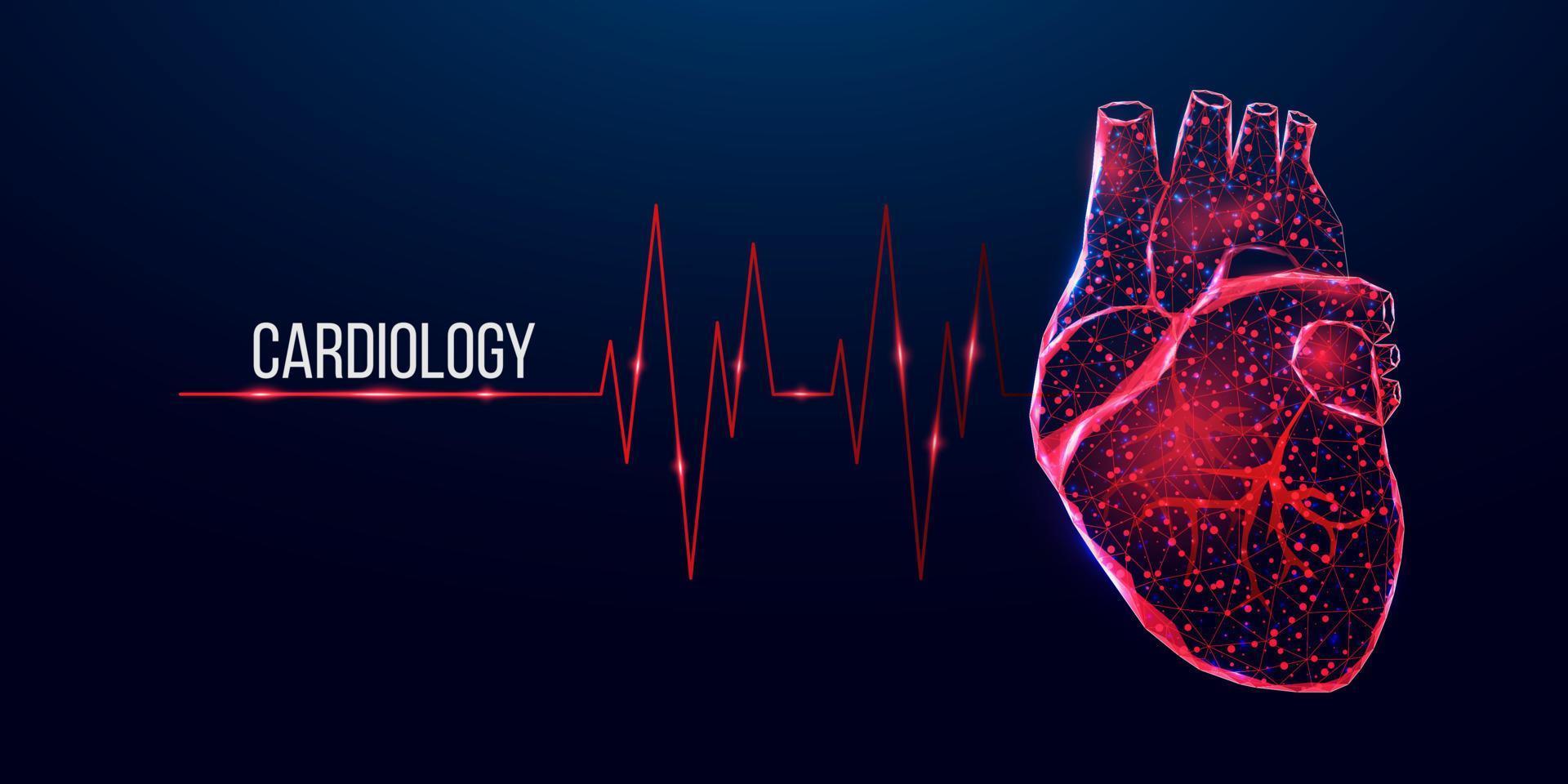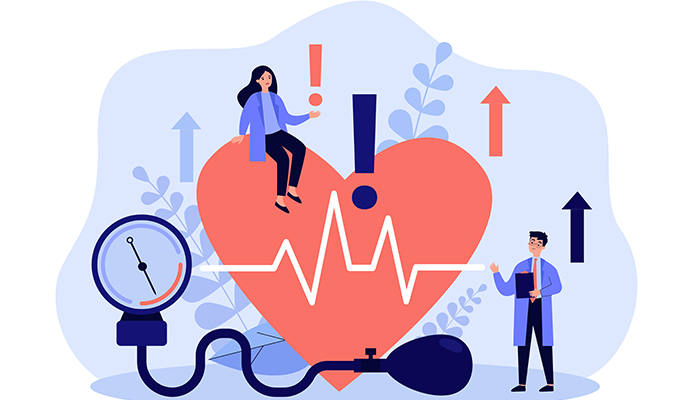The mind-heart connection through Cardiology care
The mind-heart connection through Cardiology care
Blog Article
Understanding the Value of Cardiology in Modern Health Care Solutions
Cardiology plays an important duty in contemporary health care, particularly as cardiovascular disease remains to be the leading reason for death worldwide. Breakthroughs in diagnostics and therapy have changed individual treatment, enabling earlier treatments and improved outcomes. Additionally, the shift in the direction of preventative cardiology equips people to handle their health proactively. As modern technology remains to evolve, the integration of innovative remedies might further redefine cardiology's influence on public wellness, triggering a closer assessment of arising fads and their implications.
The Frequency of Heart Problem and Its Influence On Public Wellness
Heart illness continues to be the leading cause of death internationally, its influence prolongs far past private patients to influence public health and wellness systems and economic situations. The high frequency of cardiovascular disease positions a substantial pressure on medical care sources, necessitating raised funding for recovery, treatment, and avoidance programs. Public health initiatives have to attend to threat elements such as excessive weight, smoking, and less active lifestyles, which add substantially to the climbing occurrence of heart conditions.Moreover, the economic concern linked with cardiovascular disease is enormous, including not just direct medical costs yet also indirect expenditures connected to lost efficiency and early mortality. Areas encounter difficulties in managing these costs, usually resulting in differences in healthcare gain access to and end results. As the populace ages and lifestyle-related risks continue to intensify, the necessity for effective cardiology interventions becomes critical. Subsequently, dealing with heart problem is not just an issue of private wellness however also an essential public health top priority.
Advancements in Heart Diagnostics and Imaging Techniques
Current advancements in heart diagnostics and imaging methods have actually transformed the field of cardiology, boosting the capability to keep track of and detect heart conditions. Strategies such as heart MRI, CT angiography, and echocardiography have actually become increasingly sophisticated, giving comprehensive pictures of cardiac frameworks and functions. These modalities enable for the very early recognition of problems like coronary artery illness, cardiac arrest, and valvular disorders.Moreover, advancements in non-invasive diagnostics, such as wearable innovation and remote surveillance tools, have empowered patients and medical care carriers. These tools promote real-time tracking of heart rhythms and various other essential indicators, leading to prompt treatments. Furthermore, fabricated intelligence is being integrated right into imaging analysis, enhancing accuracy and efficiency in medical diagnosis.
Developments in Treatment Choices for Heart Issues
Recent advancements in cardiology have actually caused significant advancements in treatment options for heart disease. These consist of innovative medical techniques that improve step-by-step outcomes and emerging medications that provide new avenues for therapy. As the area develops, these advancements play an important role in boosting individual care and outcomes.
Advanced Surgical Techniques
Advancements in surgical strategies have actually changed the landscape of cardiology, offering new wish for people with heart problems. Minimally invasive treatments, such as catheter-based interventions, have greatly minimized recuperation times and hospital keeps. Methods like robotic-assisted surgical procedure boost accuracy, enabling specialists to navigate intricate physiological structures with greater accuracy. In addition, advancements in imaging technology help with real-time visualization throughout procedures, boosting outcomes. Transcatheter aortic shutoff substitute (TAVR) exhibits an innovation in dealing with aortic stenosis, enabling valve replacement without open-heart surgical procedure. Furthermore, hybrid methods that integrate catheter-based and medical techniques offer tailored solutions for numerous cardiac concerns. These innovative medical strategies not only boost client safety and security yet additionally expand treatment options, emphasizing the vital duty of innovation in modern cardiology techniques.
Emerging Medicines and Treatments
As the landscape of cardiology remains to evolve, emerging drugs and treatments play a crucial role in improving treatment alternatives for heart disease. Technologies such as novel anticoagulants and progressed lipid-lowering representatives have actually changed the monitoring of cardio conditions, considerably lowering client morbidity and mortality. In addition, the development of genetics therapies and regenerative medication offers appealing methods for dealing with conditions previously regarded permanent. Scientific tests are continually disclosing the efficacy of these treatments, pushing the boundaries of traditional therapies. The assimilation of digital health and wellness technologies helps with individualized medicine, enabling for customized treatment strategies based on hereditary and way of life factors. Collectively, these innovations underscore the vibrant nature of cardiology, enhancing person end results and redefining standards of treatment in contemporary medical care.
The Duty of Preventive Cardiology in Patient Treatment
Preventative cardiology plays a crucial duty in patient treatment by concentrating on the recognition of threat elements that add to cardiovascular disease. With way of life adjustment strategies and early discovery strategies, doctor can efficiently reduce the incidence of cardio occasions - Cardiology. This proactive approach not only enhances client end results however likewise promotes lasting wellness
Threat Factor Identification
While heart diseases stay a leading root cause of morbidity and mortality worldwide, effective danger variable identification acts as a keystone of preventative cardiology. Determining risk variables such as hypertension, hyperlipidemia, family, and diabetes history is essential for very early intervention. Healthcare experts utilize numerous evaluating approaches to review these factors, permitting tailored preventive actions. Furthermore, understanding a client's lifestyle options, such as smoking cigarettes and physical lack of exercise, further notifies risk analyses. This detailed evaluation makes it possible for clinicians to develop customized care plans targeted at mitigating threats. By prioritizing danger factor recognition, health care systems can improve client outcomes and reduce the total burden of heart diseases, eventually adding to enhanced public health techniques and source appropriation.
Way Of Living Modification Methods
A wide variety of studies highlights the essential role of way of living modification techniques in reducing heart disease danger. These approaches incorporate dietary adjustments, raised physical task, smoking cessation, and weight administration. By taking on a heart-healthy diet plan abundant in fruits, veggies, entire grains, and lean proteins, individuals can decrease cholesterol levels and high blood pressure. Normal exercise strengthens the heart and boosts general cardio health and wellness. Furthermore, stopping smoking greatly minimizes the threat of cardiovascular disease and boosts healing prices for those with current conditions. Weight management better contributes to cardio health by mitigating various Learn More other risk variables such as diabetes mellitus and hypertension. Carrying out these lifestyle alters not only advertises specific wellness however also acts as a keystone of precautionary cardiology in individual treatment.
Very Early Detection Techniques
Way of life modifications greatly add to lowering heart disease dangers, yet they are most reliable when coupled with very early detection techniques. Preventive cardiology highlights the value of determining potential heart concerns prior to they intensify into serious conditions. Methods such as high blood pressure surveillance, cholesterol testing, and progressed imaging modern technologies like echocardiograms play vital duties in reviewing cardiovascular health and wellness. Biomarkers and genetic screening additionally boost the accuracy of very early detection, enabling for tailored precautionary techniques. Routine cardiac danger evaluations encourage health care companies to intervene proactively, potentially preventing heart strikes and strokes (Cardiologist near me). By incorporating these very early discovery methods right into regular care, clients can gain from timely way of life treatments and targeted treatments, eventually enhancing end results and improving top quality of life
Integrating Technology Into Cardiology Practices
As advancements in technology remain try this web-site to improve different areas, the integration of cutting-edge tools and systems right into cardiology methods has actually ended up being necessary for enhancing patient care and results. Telemedicine platforms allow cardiologists to keep track of people from another location, enhancing access to care while lowering the worry on medical care facilities. Wearable tools, such as smartwatches, allow continuous heart price tracking, notifying both clients and medical professionals to potential problems in real-time. Furthermore, expert system (AI) is being used to evaluate vast amounts of heart information, assisting in early medical diagnosis and personalized therapy strategies. Advanced imaging methods, consisting of 3D echocardiography, improve visualization of heart frameworks, leading to more specific interventions. Electronic health and wellness records (EHRs) streamline person details administration, ensuring that cardiologists have instant access to important data. Together, these technical improvements are changing cardiology, promoting proactive management and improved health and wellness end results for individuals with cardio problems.
The Value of Patient Education and Engagement
Individual education and engagement play a critical function in the management of cardiovascular wellness. By gearing up people with expertise concerning their problems, treatment choices, and way of living modifications, doctor empower individuals to take an energetic role in their care. This positive strategy can bring about boosted adherence to prescribed drugs, nutritional modifications, and workout routines, eventually decreasing the risk of complications.Engagement additionally fosters a solid patient-provider connection, motivating open interaction and count on. When clients feel educated and entailed, they are much more likely to voice worries and ask concerns, which can cause much better medical end results. Additionally, educational resources, such as workshops or electronic systems, can enhance understanding and advertise self-management approaches. Generally, focusing on individual education and learning and interaction is essential for boosting cardio wellness, enhancing high quality of life, and minimizing health care expenses connected with cardiovascular conditions.
Future Patterns in Cardiology and Their Prospective Effect

Frequently Asked Questions
What Lifestyle Adjustments Can Minimize Cardiovascular Disease Risk?
The current question addresses way of life modifications that can significantly minimize heart problem risk. Cardiology. Taking on a well balanced diet plan, taking part in regular exercise, maintaining a healthy and balanced weight, taking care of anxiety, and staying clear of cigarette can especially boost cardio health
Exactly How Can I Identify Very Early Signs of Heart Problems?
Identifying early indications of heart issues entails surveillance signs such as breast pain, shortness of breath, exhaustion, and uneven heartbeat. Timely recognition of these indications can trigger required clinical assessment and intervention for much better outcomes.
What Are the Differences Between Cardiologists and Heart Surgeons?
The distinctions in between cardiologists and heart specialists hinge on their functions; cardiologists mostly detect and take care of heart disease through non-invasive approaches, while heart surgeons perform surgical procedures to remedy structural heart issues. Each plays an essential, distinctive function.

Just how Commonly Should I Obtain My Heart Wellness Checked?
The frequency of heart checkup differs based upon private threat aspects. Generally, grownups must undergo evaluations each to 2 years, while those with status quo may call for even more constant evaluations as encouraged by medical care experts.
What Duty Does Genetics Play in Cardiovascular Disease Danger?
Genetics considerably influences heart problem risk, with familial patterns indicating inherited problems. Specific genetics can predispose people to high blood pressure, cholesterol concerns, and various other cardio problems, highlighting the relevance of hereditary screening in evaluating heart health. Heart illness stays the leading reason of death globally, its effect prolongs much beyond individual patients to impact public wellness systems and economic situations. Public health and wellness initiatives must address danger aspects such as obesity, smoking, and inactive way of lives, which add considerably to the rising incidence of heart conditions.Moreover, the economic burden associated with heart condition is enormous, incorporating not just straight clinical expenses but likewise indirect expenditures connected to lost performance and early death. Preventive cardiology plays an important duty in individual care by focusing on the identification of threat elements that add to heart condition. Synthetic knowledge (AI) and machine learning are boosting diagnostics and patient monitoring, making it possible for early detection of heart illness. The differences between cardiologists and cardiac surgeons lie in their functions; cardiologists mainly take care of and diagnose heart problems via non-invasive methods, while cardiac doctors execute medical treatments to fix structural heart problems.
Report this page